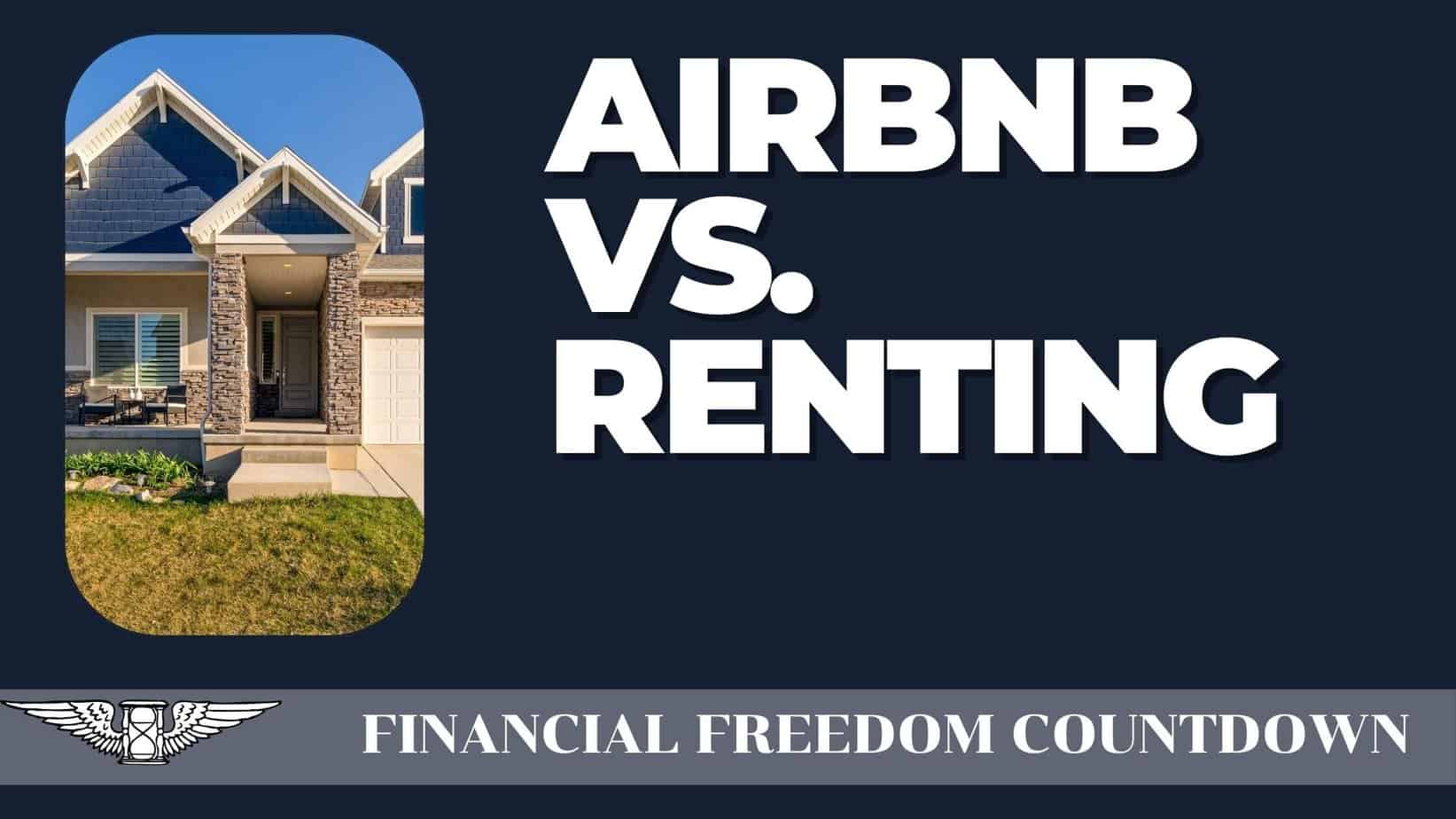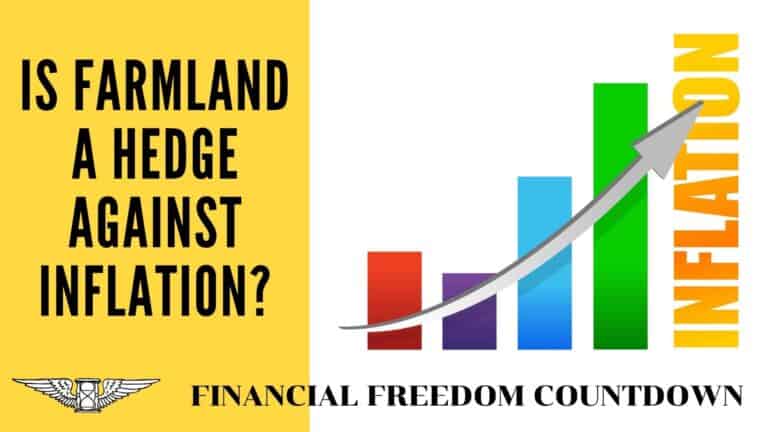Airbnb vs. Renting: What Is the Best Option for Your Property?

Are you a real estate investor looking for the best option for renting your property? Are you debating between Airbnb and long-term rental options but wondering which will provide you with the greatest return on investment?
We will dive deep into the differences between both routes so that you can decide what is suitable for your needs. We’ll explore financial gain, workload, risks, and tenant turnover. Whether you’re entirely new to investing in real estate or determining if shifting away from traditional renting methods makes sense, we’ve covered all the details here!
Overview of Airbnb vs. Renting
The fundamental difference between Airbnb vs. renting for a property owner is that when you operate an Airbnb, you are in the hospitality business compared to a traditional landlord.
In recent years, the concept of home-sharing has gained immense popularity worldwide.
Besides providing accommodation for travelers, Airbnb is also used by professionals with high-income skills who want furnished accommodation for their temporary work situation.
With California leading the list of states losing population, skilled healthcare professionals are in short supply. Local hospitals are now hiring travel nurses from other states who rent out Airbnb during their temporary stay.
With the emergence of Airbnb, finding an affordable yet comfortable place to stay has been made easier. It allows individuals to rent out their homes or apartments to visitors short-term, usually for a few days and not more than three months at a time.
On the other hand, renting involves signing a lease and renting a home for an extended period. Property owners who are fortunate enough to pick either option now have to decide if they rent their property as a short-term rental or opt for a traditional rental property.
What Rental Properties Can Be Turned Into Airbnb?
Not all rental properties can be used as short-term rentals. For a long-term rental property to be converted into an Airbnb property, it must meet the following requirements.
Regulations
Local governments are HOAs are actively discouraging short-term rentals. In California, Burbank, Calabasas, Hermosa Beach, Huntington Beach, Manhattan Beach, Redondo Beach, and Sausalito have banned short-term rental businesses, and more are expected to follow.
Investors should not buy a property assuming it can be used as an Airbnb. If you currently live in the property, it is easier in San Francisco to Airbnb a room as a form of house hacking compared to having the entire property available as an Airbnb.
It would be best to evaluate the rental property with the assumption that it will be a long-term rental. Then if you want to get more profit, feel free to operate as an Airbnb after considering occupancy tax, city license fee, and housekeeping costs.
But if you bought it solely on the premise of using it as a short-term rental and run into licensing issues, you might be unable to pay the mortgage and lose your investment property.
Location
The location is one of the main factors that should be considered when determining if a property is suitable for Airbnb.
Properties in major metropolitan areas, tourist hotspots, and other popular destinations tend to do better on Airbnb than in more rural or suburban areas.
Additionally, properties near public transportation or attractions such as parks, beaches, and restaurants can be more attractive to potential guests.
Unique Features
If your property is not located in a major city or a popular vacation spot, it must have a distinctive feature or offer an experience to stand out.
For example, if you own the property in San Francisco where Lady Gaga lived, you could make it into an Airbnb, furnish it with her pictures, and market it accordingly.
Or if you have a treehouse or a model airplane in your backyard, you could ensure your Airbnb property stands out among the several other cookie-cutter Airbnb properties.
The Similarities Between Airbnb vs. Renting
Regardless of if you want to invest in a vacation rental property or create long-term cash flow via regular renters, there are a few joint activities that you will need to do.
Buying a Property
Please select a property that can maintain its value, be attractive to renters, and be near the amenities that will help you market the property. The type of amenity will unquestionably change, depending on if you are operating an Airbnb or rental.
In the early days of Airbnb, many enterprising individuals would rent a long-term property and offer it as a vacation rental without owning it. Many landlords have since updated their lease agreement to prohibit subleasing as a short-term rental.
Market Your Property
Marketing is more critical for Airbnb than long-term rentals, as operating Airbnb properties means you will cycle through more tenants than traditional long-term renting. Also, for a vacation rental, the expectations from guests would be higher than regular long-term tenants.
Maintenance
Property owners are always responsible for general maintenance tasks, making repairs to the building, and managing unruly tenants.
Differences in Airbnb vs. Renting
Income Potential
Regarding Airbnb rentals, the right property in the right market can have incredible cash flow potential. Indeed, you can make more money with an Airbnb than with a traditional rental property, as you can charge higher rents for short-term rentals.
Ongoing Expenses
Short-term renting has higher upfront costs due to the furnishing needs when setting up the unit. Also, the ongoing expenses are not predictable due to the wear and tear of regular usage items.
You must ensure that your home is furnished and ready for guests by adding necessary items like linens, toiletries, cleaning supplies, kitchen utensils, TV, internet, and utilities and ensuring the space is clean and comfortable.
Traditional rental units do not require higher upfront costs. Also, it is easier to estimate the expenses for long-term rentals based on the 50% rule in real estate. The 50% rule includes expenses such as property taxes, property insurance, vacancy losses, utilities, general property maintenance, and repairs. It does not include mortgage payments.
For example, I would set aside $25,000 on my long-term rental, which generates $50,000 in annual gross rent to pay for expenses. In my experience, the actual costs are usually lower than what I set aside based on the 50% rule, but it is a good starting point for net operating income (NOI).
Income Predictability
Rental income from traditional rentals follows a lease agreement and does not fluctuate monthly. The long-term lease agreement determines the monthly rent.
Short-term rental hosts have the flexibility to set prices daily. Airbnb guests’ rates vary based on season, demand, and availability.
Also, since the expenses are more predictable in traditional long-term renting, you would receive consistent income.
As a result, traditional renting is more suitable as an investment for monthly income compared to vacation properties.
Government Regulations
Short-term rental businesses involve additional government regulations compared to long-term rentals regarding licenses and length of stay.
However, traditional rental units are also subject to different government regulations, such as rent control, lease agreement terms, and eviction moratoriums.
Furthermore, each local government operates differently and has different laws related to short-term leases, long-term leases, and vacation rentals. As traditional rentals have fallen off and Airbnb has risen in popularity, many local governments have passed laws meant to crack down on short-term rentals and ensure that the quality of their neighborhoods is protected.
Indeed, in some areas, local governments prohibit short-term rentals. You can’t simply buy a home and hope to generate rental revenue via Airbnb immediately. Regulations are more favorable if you are currently living in the property and Airbnb a room to save money.
Building an Accessory Dwelling Unit (ADU) could be a potential compromise in terms of privacy and a great example of value added real estate improvement.
Instead, you must work with an attorney or check local laws if you must pay extra fees. This will ensure that all cash you generate is done legally and that you don’t inadvertently run afoul of legal issues.
Tenant Selection
Short-term rental owners can screen tenants based on reviews. A traditional rental property owner needs to be cautious regarding the criteria used to select tenants to avoid any lawsuits related to bias.
One of the many reasons, traditional renting involves property managers who understand the basics of landlord duties in terms of selection criteria. Currently, relying on excellent credit scores is the only non-controversial selection criteria for long-term leases.
Tax Write-Offs
Since tax law is complicated, talking with a professional tax consultant is best. Besides the tax advantages of real estate, you can also satisfy the QBI requirement of a rental property by actively working in your Airbnb business.
Most long-term rentals are taxed as passive income based on IRS rules, though some exceptions exist.
Insurance
Short-term vacation rentals and long-term rentals both require particular insurance products. These products should protect the renter, homeowner, and anyone else who enters the property.
However, insurance can be complicated when making purchases like these, and you must buy the right landlord insurance product.
If you are converting your long-term rental into a vacation rental, consult an insurance expert to determine what product best meets your needs. The last thing you want is to violate any fine print on your insurance policy, trying to make extra money.
Airbnb host guarantee is available, but it should always be considered in addition to your insurance. Current AirCover limits include $1 million in Airbnb host liability insurance.
Detailed Stay Manual
Airbnb hosts must create detailed manuals for guests to provide clear and concise instructions on using the rental space. These manuals should include information about amenities, safety precautions, cleaning requirements, check-in, and check-out procedures, contact information in emergencies, and other valuable details.
This is especially important when renting out to unfamiliar guests, as it can help avoid misunderstandings and disputes. Additionally, hosts may consider creating a house rule document that outlines expectations around the use of the space, noise levels, and guest behavior.
A clear policy will help the host and guest understand their rights and responsibilities. By creating detailed manuals, policies, and guest expectations, Airbnb hosts can provide a better experience for all involved parties. Additionally, this can help reduce disputes in the long run, as everyone knows what to expect when renting out an Airbnb.
A rental agreement for long-term tenants does not need to include detailed manuals on using the rented space.
Tenant Turnover
Real estate investors find it beneficial to have tenants who stay longer because finding new tenants can be expensive and take up a lot of time and energy.
Vacation rentals have frequent guest turnover, which could be as frequent as every few days.
Evictions
Evicting a long-term tenant is both costly and time-consuming. Also, you have local laws such as eviction moratoriums which can impact evicting long-term tenants from your investment property.
For example, San Francisco is still having an eviction moratorium.
On the other hand, with short-term agreements, problem tenants can be removed quickly within a few days without much financial impact since they paid in full when they arrived.
The Workload
Remember: Money isn’t everything.
When operating an Airbnb vs. renting, you may be tempted to immediately pivot to whatever will make you the most money and generate the highest cash flow. This is an understandable reflex!
However, you must also know what stress and workload you will engage in. Active Airbnb management is complex: You have to provide maintenance, manage the cleaning of the property, market the property, and liaise with Airbnb to ensure that you are meeting the needs of their customers.
Failure to do this will result in low customer ratings and may mean you are removed from the platform.
| Airbnb | Traditional Rental Property | |
|---|---|---|
| Income Potential | Higher | Lower |
| Ongoing Expenses | Higher | Lower |
| Income Predictability | Lower | Higher |
| Government Regulations | Higher | Lower |
| Tenant Selection | Based on reviews | Based on credit score and income |
| Tax Write-Offs | Higher | Lower |
| Insurance | Need extra insurance | Landlord and property insurance |
| Detailed Stay Manual | Required | Not needed |
| Tenant Turnover | Higher | Lower |
| Evictions | Guests pay in advance | Subject to government rules |
| The Workload | Higher | Lower |
Airbnb vs. Renting: Questions You Need To Ask Yourself
Ready to consider whether or not to get into Airbnb vs renting? Great. In addition to the above considerations, there are a few things you need to ask yourself:
- Do you have any experience with actual Airbnb or renting? If not, do you have a support network of people you could ask questions to? Do you know other real estate investors you can work with to guide you on this business venture? What is the best way to monetize your asset? What research do you need to do to enter the vacation rental business?
- What sort of paperwork is already done? Do you have a rental agreement in place that you could use, or at least have access to the necessary paperwork easily? Do you have the necessary approvals to operate a vacation rental site?
- Are you prepared to manage the workload that comes with either an Airbnb property or rental property? Although you could outsource both types of properties, the amount of work involved with a short-term rental business is much higher than long-term rentals.
- What contingency plans are in place if your short-term renter creates a problem within your property? How would eviction work for Airbnb hosts vs. traditional landlords
- Do you have experience working with Airbnb or other vacation rental platforms? Airbnb is one of many platforms out there, and you may have plenty of other options that can fit your needs and provide you with the extra income and method to get cash out of your real estate investment.
- In other words: If you want to own an Airbnb property, what workload will you tolerate? What sort of stress are you ready to inflict on your own life?
- That’s not to say that operating long-term rental properties is a stress-free proposition. However, generally speaking, there is less stress associated with long-term rental properties than with an Airbnb rental property.
- This is because of the reduced turnover and more stable tenant base. Of course, one bad tenant can create a nightmare scenario for you and your management company, but there are many checks you can engage in to avoid stumbling into this type of situation.
Should You Turn Your Rental Property Into an Airbnb?
When it comes to real estate investing, you have options. Indeed, owning a piece of real estate allows you to monetize that income-producing asset by turning it into a rental property.
When deciding between Airbnb vs. renting, you have many considerations. If profit is your only concern, the market should dictate what allows you to make more money. However, a pure profit motive is rarely the sole driver of your financial goals.
As recently as a decade ago, the most stable type of rental property you could have used would have been simply renting out your home to individuals looking for places to live. Vacation rentals were possible but seldom used, save for vacation hot spots.
Traditional renting, of course, is now not the only way you can make money off of a real estate investment, and the rise of Airbnb has created a whole new market for short-term rentals.
With the right property and marketing, an Airbnb rental can provide a steady cash flow, provided property owners adhere to local laws.
Airbnb rentals are much more short-term, meaning that an individual will rent out a property to more tenants than with a long-term rental property. Short-term rental hosts thus have the chance to generate more revenue. However, Airbnb rentals often require more work for individuals.
In some cases, traditional renting is still the best way to generate cash from your residential property.

John Dealbreuin came from a third world country to the US with only $1,000 not knowing anyone; guided by an immigrant dream. In 12 years, he achieved his retirement number.
He started Financial Freedom Countdown to help everyone think differently about their financial challenges and live their best lives. John resides in the San Francisco Bay Area enjoying nature trails and weight training.
Here are his recommended tools
Personal Capital: This is a free tool John uses to track his net worth on a regular basis and as a retirement planner. It also alerts him wrt hidden fees and has a budget tracker included.
Platforms like Yieldstreet provide investment options in art, legal, real estate, structured notes, venture capital, etc. They also have fixed-income portfolios spread across multiple asset classes with a single investment with low minimums of $10,000.





